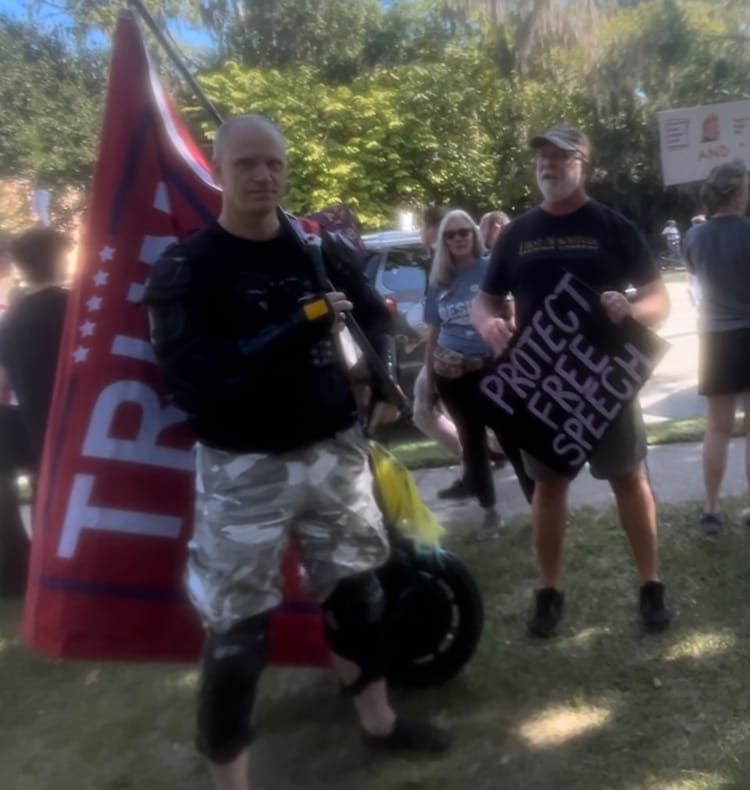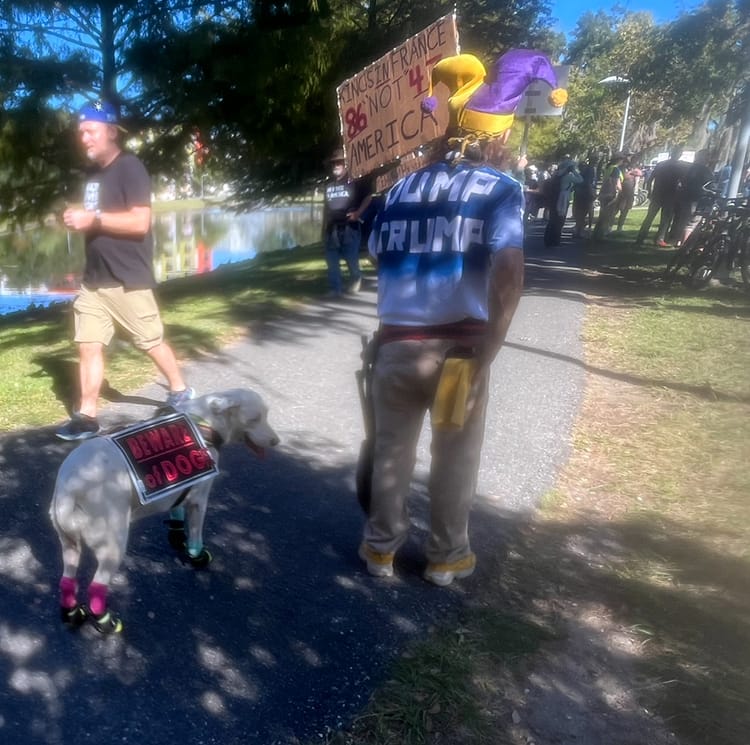Vigil Held by Bangladeshi UF Community for Protesters Seeking PM Hasina's Resignation; PM Resigns and Flees Bangladesh Shortly After
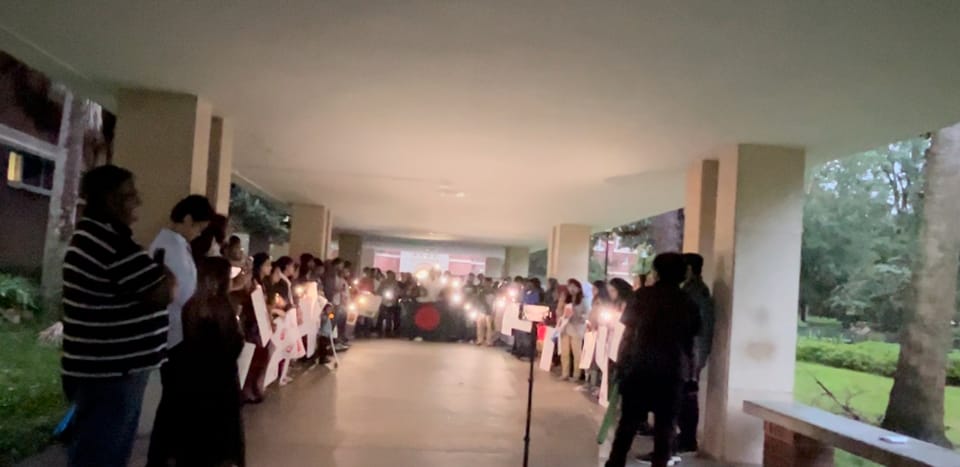
On August 4 Bangladeshi University of Florida (UF) students and faculty held a vigil for the hundreds of protesters and bystanders who've died in the movement for former Bangladeshi Prime Minister (PM) Sheikh Hasina to resign.
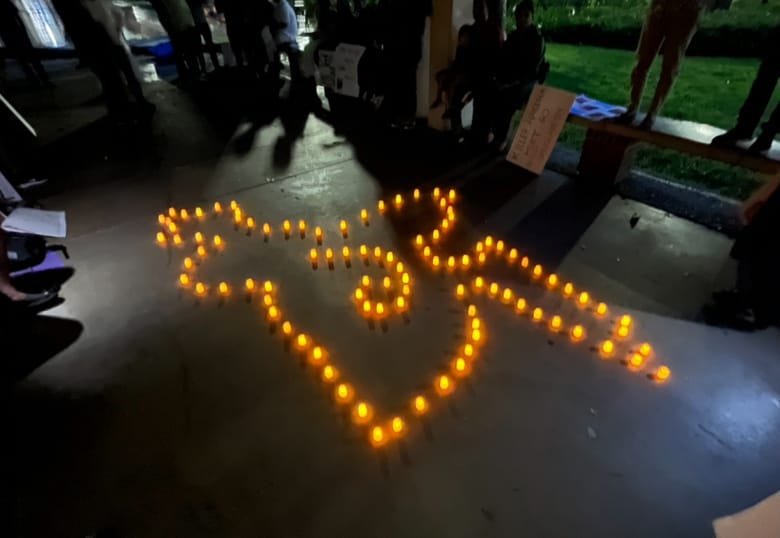
The protests initially spurred in June due to the Bangladeshi government denying student job quota reforms. After at least 149 people were killed, on July 21 Hasina agreed to reform the quotas from 30% to 5%; however, Bangladesh protesters viewed it as just a way to calm things down temporarily without implementing meaningful change.
Bangladeshi Gainesville resident Jabir Hossain said at last week’s Hasina protest at Bo Diddley Plaza that “We know they can revert it back easily…. It's meaningless for them to do it to calm things down because it's not about the quota anymore; it's much bigger. It's a complete uprising. We’re not just talking about quotas; it's against the regime.”
The actions of protesters in Bangladesh showed agreement with Hossain’s words, as they marched to Bangladesh's capital, Dhaka, today, demanding that Hasina resign.
Standing in front of Library West, the local Bangladeshi community held a moment of silence for the lives taken by Awami League forces.
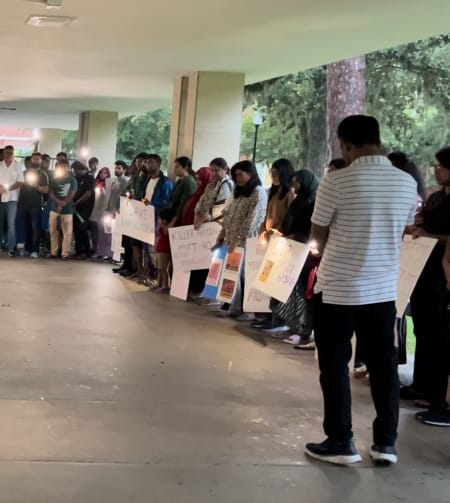
Many of the victims have been children, with the United Nations International Children's Emergency Fund reporting that "32 children were killed during July’s protests, with many more injured and detained"
Different reports have emerged of the exact number of protesters and bystanders who've been killed.
Bangladeshi police killed at least 211 protesters and injured at least 1,600 as of July 27, according to Bangladeshi newspaper New Age.
Bangladesh Awami Party Parliament member and Minister of Home Affairs Asaduzzaman Khan said the death toll of as of July 28 was 147.
Most news networks have reported that 13 or 14 policemen were killed in protests on August 4; however, the number of protesters and/or bystanders killed is differentiated.
Reuters reported the death toll on August 4, minus policemen was 78.
The Washington Post reported the total death toll on August 4 was “at least 57 people, according to a Washington Post tally of reports from hospitals and police.”
Bangladeshi nonprofit Shohid reported that the death toll was 319+ prior to August 4. The nonprofit reported 29,000+ injured people and 11,000+ who’ve been arrested or gone missing.
Early morning August 5, Shohid updated showing the number of injured has increased by over 4,000 and the death toll as 490+. This would mean over 170 Bangladeshi protesters were killed in a single day on August 4.
Additionally, most reports regard the new wave of violence as beginning on August 4. However, Bangladeshi journalist Zulkarnain Saer reported on August 2 that there were “fresh clashes between students and security forces” and “police in the Sylhet district were seen shooting at protesters”
PhD UF student and President of UF Graduate Students of Bangladesh, Md. Muyeed Hasan, criticized the mainstream media’s coverage of the Bangladesh protests. “The mainstream media does not ever reflect the whole scenery of our country. They mostly support the government; the mainstream media—that’s a big problem. Now is the time for social media to turn things around, that’s how people know.”
On August 2, a ban on Instagram, Facebook, TikTok, Whatsapp, and Youtube went into effect in Bangladesh. This is in addition to the Bangladesh government having moved to once again shut down internet services as they did previously in the protests in July before partially restoring access.
A number of protesters in Gainesville said they were not able to communicate with their families and friends in Bangladesh.
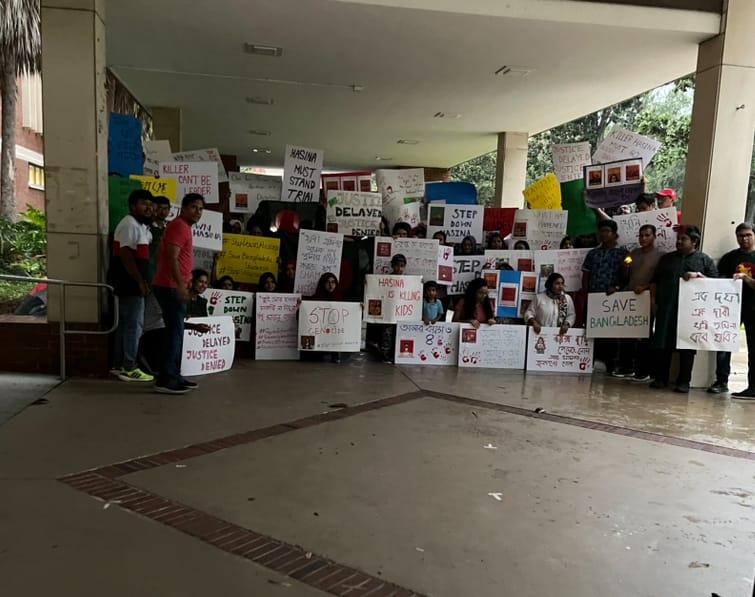
The internet shut down hasn't stopped videos of Bangladeshi police’s crimes from being broadcast on the internet.
A video posted on August 4 on Twitter shows multiple Bangladeshi police cornering a protester, with one officer shooting him in the leg.
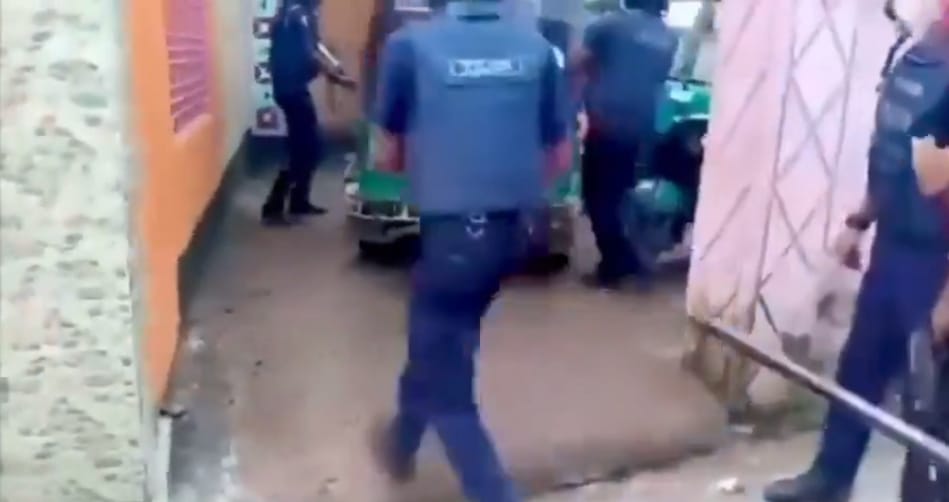
Another video posted on Twitter on August 4 shows Bangladeshi police shooting protesters from a roof top.
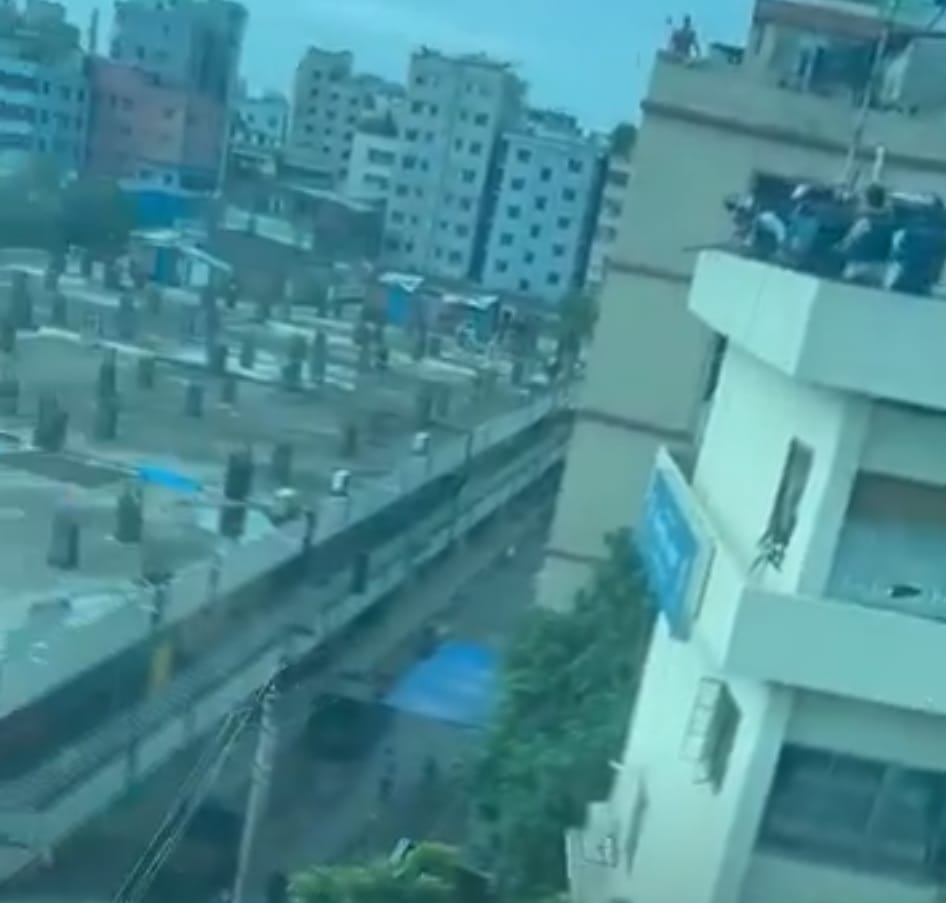
Bangladeshi police are not the only physical force working to carry out attacks on protesters in the name of the Awami Party. The Chhatra League is the Awami League’s student wing in Bangladesh colleges. There is also the Jubo League, a youth wing of the Awami Party.
On August 2, Bangladeshi human rights activist Pinaki Bhattachayra reposted a video in Uttara, Dhaka, reporting, “Police and helmeted members of the Chhatra League and Jubo League were continuously firing…. Students sought refuge in houses, but League members followed and assaulted them, including female students.”
Unlike Bangladesh police forces and student groups, the Bangladesh Army hasn't shown unwavering support for Hasnia and the Awami League.
Former Bangladeshi Army Colonel Dr. Shahid Uddin Khan calls for a “mass uprising” in his Twitter bio.
On August 4th, he said, “Allah will send His army the likes of which we have not seen before,” showing a video of the Bangladesh Army backing up the protesters as they cheer.
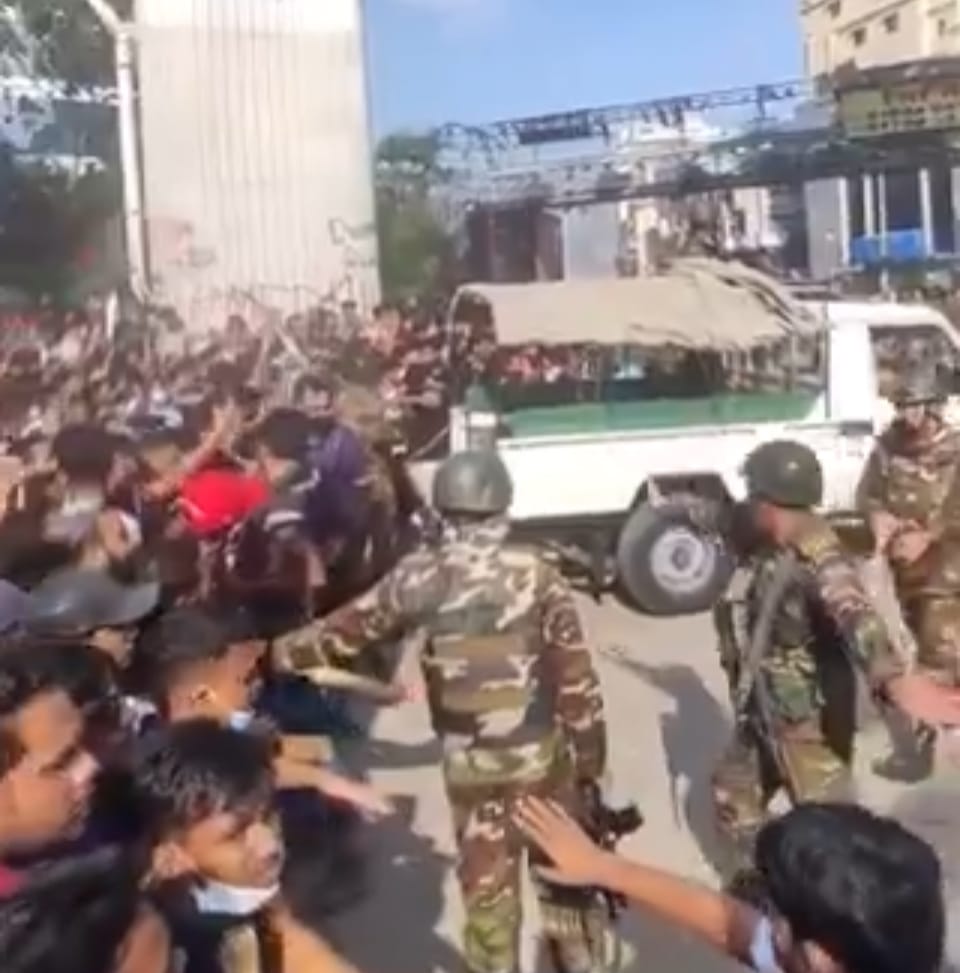
A video posted by Saer on August 4 shows soldiers firing rounds as protesters cheer. He reports that “Soldiers fired burst rounds to disperse the Chhatra League” and “Similar incidents have been reported at multiple locations across the country.”
The protesters ultimately succeeded in their goal for Hasina to resign. In the early morning of August 5, Saer posted a video on Twitter showing Hasina exiting a helicopter and entering a car, reporting that she was “subsequently boarded onto an aircraft.”
Shortly after, Hasina resigned.
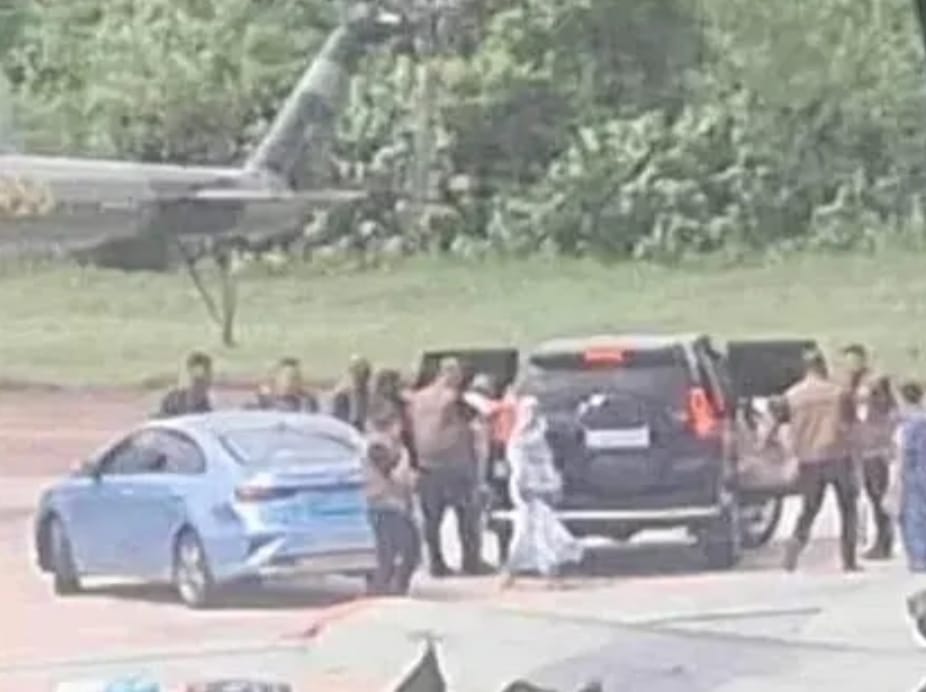
Bangladeshi protesters have stormed Hasina's old house. The Bangladeshi Army Chief Walker-uz-Zaman officially announced Hasina’s resignation and the formation of an interim government. He made calls for peace and promised justice.
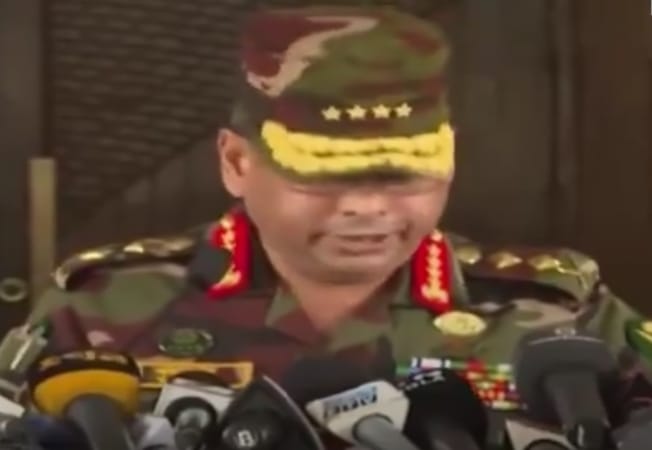
UF Grad Student Noor Nahid and former President of UF Grad Students of Bangladesh said “Given the overwhelming public response it became evident that Sheikh Hasina had no option but to resign…. Despite the current turmoil, I remain hopeful that these developments will pave the way for a more democratic Bangladesh.”



